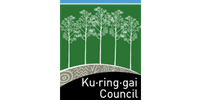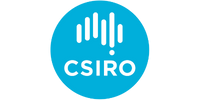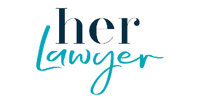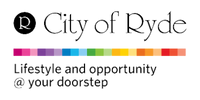Podcast Episode

In this episode, we explore the impact of language and its ability to engage your audience. Language goes beyond words; it's the key to conveying your message effectively in every aspect of your business. From marketing to networking, Maree shares tips on using language to build trust with clients. Implement these tips in sales calls, networking, and casual conversations. Consistency in your messaging across all business touchpoints is crucial. Join us to unlock the power of language in your business communication.
DOWNLOAD 7 STEPS TO A SUCCESSFUL SALETranscript:
Hello, and welcome to the sales show. I'm Maree Kirkpatrick, your host and today we're diving into a topic that I truly believe can transform your business. It's all about how to talk about what it is that you do, and the real power of language.
Now, language isn't just about words, it's about how you connect how you convey your message, and how you really create a lasting impression whether you think that people are thinking that or not, it can really change the way people think about you. So get ready for us to dive in deep and elevate your business game focusing just on your language.
Now, let's start with the basics. Language matters, whether it's good language, bad language, naughty language, Clean Language, it's a foundation of how you and your business communicate to the world and this isn't just about the language that you use within your business, it's the language that you use to talk about your business is the language you use to talk about what it is that you do, the words you choose can really create interest, they can shape people's perceptions, they can build trust, and they can leave a lasting impact on anyone that you speak to or anyone that comes across any words that you have written, or the experiences that they can have within your business.
Think about it. What happens when people start talking about what it is that they do? I go on regular Zoom calls, where there's a bunch of women in business, and we're all talking about what it is that we do, or what's happening for us at the time. And the challenges anything that we're launching, you know, new courses, new products, all that sort of stuff. And what I noticed most of the time, is that people say I'm just this, or I've got this, and it doesn't really invoke any emotion or interest or anything. People will go Okay, great. That's nice. And then they move on. But what if it didn't have to be like that? What if it sparked interest? What if it got people thinking that, Oh, well, maybe this person can really help me or that's something that I connect with? Or I've experienced that too. Or I'm currently in that stage? I'm looking to get out of it. It's really hard. I just haven't found anyone that can help me.
I see it happens. So often, when people introduce themselves, someone will say, what is it that you do or tell me about yourself, and then the language creeps in. Oh, I'm just a coach. Or I'm just this or I've just got this small business. There filler words, take the just out, take away the small words that downplays things. You don't need to downplay your products or services. It's not a mini course, it's not a small course. It's not just a little business. It's not a hobby business. All these words, give people a perception about what it is that you do. If you change it up that language, it can really impact the way people can connect with what it is that you are doing.
Stop it Stop downplaying stuff. If you downplay it, I can guarantee you that your ideal clients and your industry will downplay it too they won't think it's that much. It will also impact on the perceived value that you offer people, if it's just a small course or it's a mini course, or it's a taster. Even when people say oh, it's a Betta round. No, it's the first round. It doesn't have to be beta round. It's the first round where people are getting to experience you what it is that you do the transformations that you can help people with. Don't downplay this stuff, really watch your language. And I'm not just talking about the naughty words. I'm talking about every single word that you put out there.
There's obviously different places that we need to watch our language, right? So it can be in your marketing, it can be in your branding, it can be on podcasts, it can be on your website, social media, marketing materials, these are all your digital assets of your business. Everything that you put out there is giving people a perception of what it is that you do and they are subconsciously deciding whether they know you like you trust you could work with you if there's an opportunity to work with you have you got the credibility that they're looking for. So people are making these decisions based on the way you talk about what it is that you do. And having and using the right language can really captivate your audience.
It can stir those emotions of like, yes, that chick knows what she's talking about, or that someone I want to work with, or that someone that I know is an expert in her industry, it can make you and your brand and your business so much more memorable.
Let's take an example of Shark Tank, I don't know if you've been watching the most recent version of Australian Shark Tank, it's something that I'm always interested in, not from an investing point of view, but listening to how people talk about what it is that they do. And the way that people go in and pitch to the panel of the sharks, the language that they use, the way they present their products and services, the branding, the way they talk about it can literally make or break the sharks wanting to invest with them.
The sharks are basing their opinion on the person that is standing in front of them talking about that business, that product, or that service, right? And so every time you go to talk about your business, think that you are in the Shark Tank, pitching to people, because that's what you're doing, even though I hate the word pitching. But it's about communicating, how are you communicating with your ideal clients with your target market, all that sort of stuff, is based around the language that you're using.
I honestly believe that some of the most important times that you need to watch your language is when you're interacting one-on-one with someone. So if someone has inquired with your business, and they say, Oh, hey, Maria, can I jump on a call? Or can you help me with my business or something along those lines, and we have that call? It's really important for me to use the language that they are using when they talk about their problem, or the challenges or what it is that they are wanting, literally, replay back to them what it is that they're saying it is vital. I see people so often change the language that their ideal clients are using, or they use words that they think that their client is thinking and feeling when it's not actually connecting.
You need to get on the floor with where your ideal clients are, it will be so much more powerful. If your use the same words that your ideal clients are using.
One of my beautiful clients before we started working together was using quite high-level words. And I said to her, are your clients actually thinking that? Are they sitting there? Thinking? Oh, yeah, I really want to focus on my metabolic health. No, they're probably not thinking that they're probably thinking, I want to lose weight, I want to feel better about myself, I want to have more energy, I want to stop eating chocolate because I feel crap. Like all that stuff, is language. And so we need to get on to that level with our clients use the language that they are saying. And if you're not sure what your clients are saying, listen back, ask questions, go back over some recordings, if you've got any Zoom recordings of conversations that you've had with people, they are so powerful. So get on their level, use the language that is making them think that you are literally looking inside their window, use language that sparks emotion and gets people saying, Do you know what? That's exactly me, or that's what's happening for me, or well, you really get what I'm talking about.
What I also want you to understand is that language can pull people closer to, or it can push people away. And sometimes people won't even know that it's happening, it's all tends to happen subconsciously. And I talk about this in a lot of the work that I do. And in her Sales Club, we talk about red brain, green brain, different language-specific words, and things to either swap out or use depending on what it is that you're trying to get people to understand. But I just want you to know that we want to be pulling people closer into us rather than pushing things onto them. And so sometimes people will just feel like it's the right decision for them. And a lot of the time that is because you have connected subconsciously, emotionally based on the language that you're using.
I want you to understand that using the right language can also help show the true value, not just the value, but the true value of what it's like working with you. It can paint this beautiful picture that people can see themselves in and what their life may look like with your help, or after working with you or once they have solved that problem. And that's what gets people moving forward. That's what gets people saying, Yes, I want to work with her or yes, this is the right decision to go with. Now. I am huge on giving people a lot of value. And I want to give you some tips to improve your language within your business. As always, they're going to be practical and they really easy to implement. So if you can jot them down, if you can't, if you're out and about or you're listening in the car, make sure you come back to this point because if you
In just tweak a few of these things, it'll make a huge difference in your business. So craft a few quick sentences that conveys what it is that you do. So how do you help people? So for me, I say something along the lines of I help women in business learn to sell what it is that they do in a connected and relationship, focus, weigh.
Now, if I say that to people, they know within a few seconds, whether I'm for them, whether it's something that they need, if it's something that they connect with, and it will spark interest in people rather than just saying, I'm a sales coach, or I'm a Sales strategist, and they go, okay, great, that's nice. And then they turn in or try and change the conversation or turn to talk to someone else, right? So you want to have a few quick sentences that every time someone asks you what it is that you do that it easily flows, and people can make that decision whether they are right for you. It's also sometimes about what is that transformation. People call it a pitch, you know, what's your elevator pitch? I feel like elevator pitch is so overdone is very old school. So for me, it's like what can I tell people that I do and how I help people in a really short, sharp way that helps them make that decision whether they can connect with me or whether I'm the right option for them.
The next tip I want to give you is ensure that your language and your messaging is consistent across all touchpoints of your business, your website, your social media, your lives, your posts, your networking conversations that you're having with people when people see you on social media, and then start working with you behind the scenes that messaging and language should be the same. Don't try and change it because it'll upset people. It will disconnect people from what it is that you do. So make sure that your messaging and your language is consistent across everything that you do. And it is really clear, people can see exactly what it is that you do in a couple of sentences.
I just want to add a little side note in here. If you're doing things like Facebook ads, or Google ads, every title or image or video that you create needs to be able to get a message across without people having to have seen past information, past posts, and things like that each tile, if it's visual, each tile should say exactly what it is that people are going to get from you or how you help people. So that's just a little random bonus sidenote.
The next thing you want to do is use language and words that your ideal clients are currently using. It will build trust and understanding within your clients. You know, people say that people buy from people that they know like and trust that is all based around language, the language you use will either build that connection, or it won't. So make sure that you are using those same words and the language that your ideal clients are using. What are they talking about? How are they talking about it? How is it showing up for them in their life, all of that sort of stuff?
The next thing I want to give you is use positive and solution-orientated language, Future Focus. don't downplay your offers by adding unnecessary words in there. There's no just there's no little there's no mini it is a course if you're putting out courses that aren't helping and transforming people maybe look at the reason why putting out the course. But just make sure that it's positive and future-focused because that is a huge game changer. When it comes to language, people will be able to connect and build relationships with you and your brand, and your business a lot better now obviously be a lot beyond our customer interaction language plays a significant role in the positioning of our business and also your self-confidence.
So if you embrace your unique voice and speak with confidence, people will be able to feel your presence, your expertise, and your experience. I have spoken to many people over the years who know their craft and have worked tirelessly on their skills for many, many, many years. But when they talk about it, they sound shy, they sound unsure, they're not really clear on how to get that value and their messaging across. If you sound unsure, people will question whether you know your stuff. And if you're the best option for them. Make sure use your voice and your language to get that message across that you are the expert in your industry. And you're really clear as to why people should work with you.
So to wrap up, remember that language is really really, really freakin powerful. It can change the way you deliver your messaging and the way that you show your value to the world. And the way that the world interprets your business and what it is that you do. It gives you the power to connect and really inspire and succeed by literally using the words that you use. Implement these tips that I've given you into your business, use it on networking calls, use it on your social media, use it in your sales calls, and anytime you're even chatting to someone random that you meet at an event or on the sideline of a sporting event or anything along those lines. Any time you talk about what it is that you do be really be clear on the language that you're using.
Thank you for joining us on this episode of the sales show. I hope you have found these insights valuable, I would absolutely love you to share your language-related success stories. So follow me on Instagram at Maree Kirkpatrick and tell me what you have noticed or even what you've changed in your language and the success that you've had. Or you can even share some stories with me about language that people have used that have made you go, wow, that's really powerful, or that's not that pretty. Until next time, keep embracing the power of your language to really help your business grow.
COMPANIES WE HAVE WORKED WITH:










